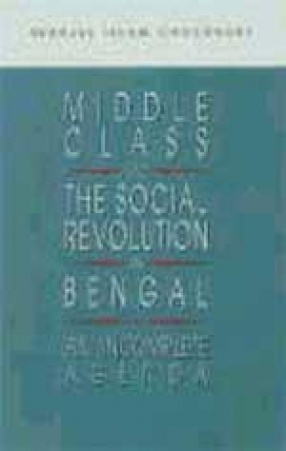Since the middle of the nineteenth century, the need for a social revolution has been felt and talked about by the middle class in Bengal. But, ironically, it was the middle class itself that has hindered the revolution. The state has changed in size and name but not in character, indicating that relationships within society have remained basically as they were before. This book examines the double role of the Bengali middle class. Middle class’s participation in politics and achievements in the fields of education, literature and culture have been remarkable. Nevertheless, radical social transformation leading to economic advancement of the masses, liberation of the latent energies of the people and reduction in discrimination and inequality has not been on its agenda, despite public protestations to the contrary. The common man has felt the oppression of the social system in his bones but has remained unable to articulate his demands. The narrative begins at the point in the nineteenth century when the Bengali middle class began to emerge as a class-in-itself and continues till the present time, taking 1947 and 1971 as turning points when the Muslim middle class found itself freer, first within the state of Pakistan and later setting up a state of its own. The story has a completeness, although it does not include what happened in West Bengal after 1947.
Culture, Religion and Traditions in India (In 3 Vols.)
In the long-drawn process of ...
$57.95
$61.00




There are no reviews yet.